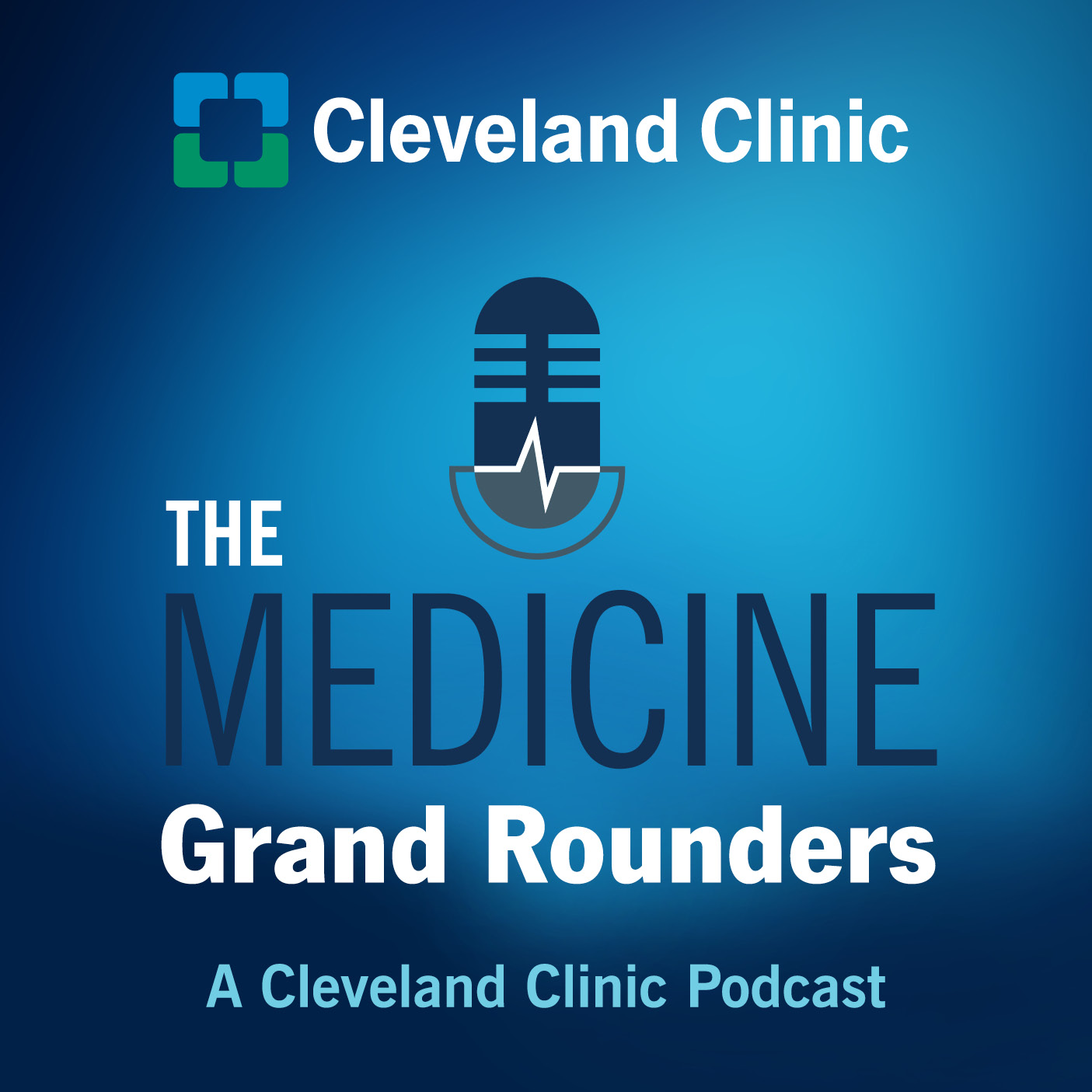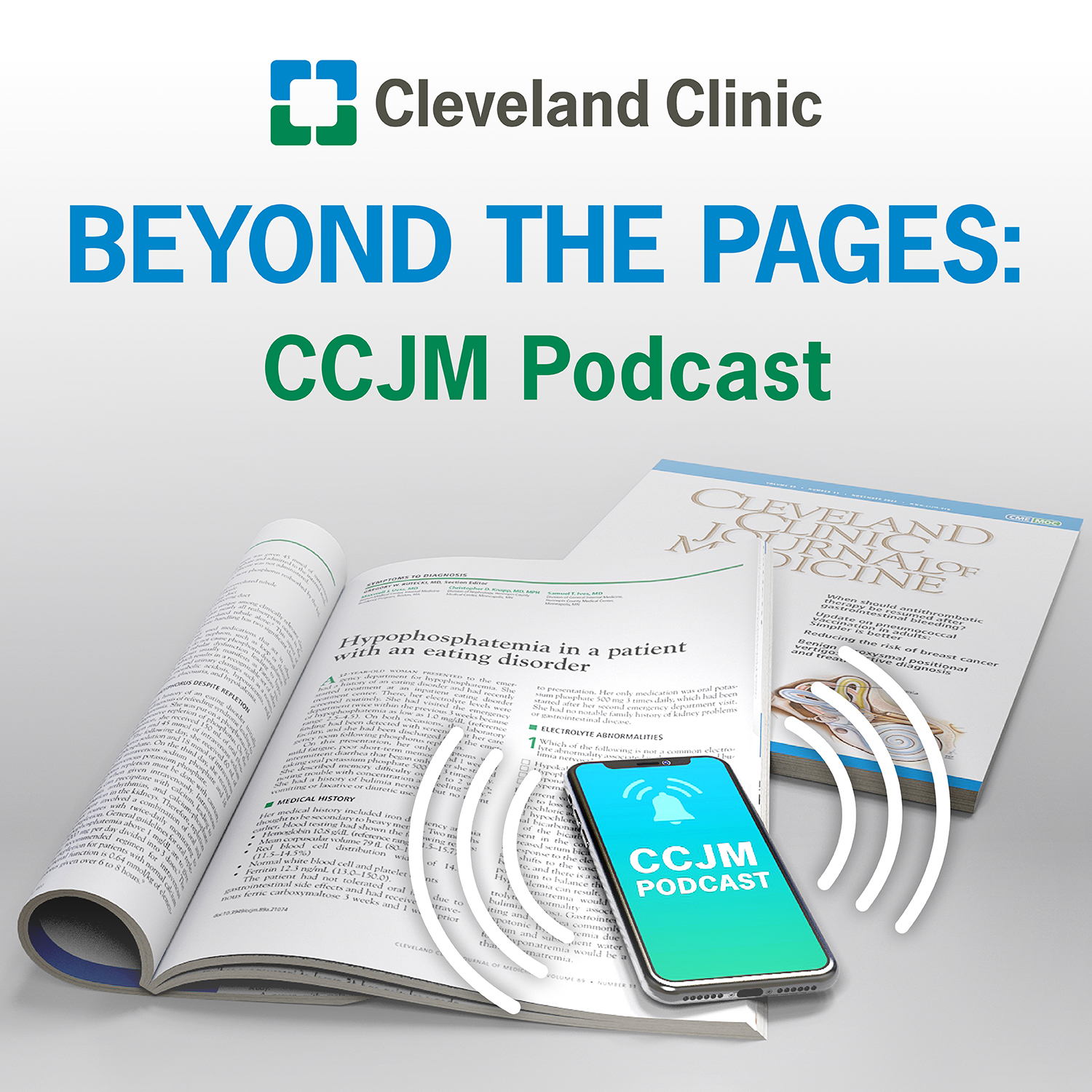Pericarditis with Dr. Allan Klein

In this episode of the Medicine Grand Rounders, Dr. Klein goes over his evidence-based approach to pericarditis. Moderated by Abdel Hadi El Hajjar, MD.
Subscribe: Apple Podcasts | Buzzsprout | Spotify
Pericarditis with Dr. Allan Klein
Podcast Transcript
Hadi: "Welcome to the Internal Medicine Grand Rounders Podcast! I'm your host, Hadi, a 3rd year IM resident and future cards fellow. Today, we have the privilege of speaking with Dr. Allan Klein, Director of the Pericardial Diseases Center at the Cleveland Clinic. Dr. Klein is a leading expert in pericardial diseases, and we're excited to delve into the latest advancements in diagnosing and managing pericarditis. Welcome, Dr. Klein!"
In this episode, we will discuss how to manage the first episode of acute pericarditis and then move forward to discuss how to manage recurrent pericarditis.
Part 1: Acute Pericarditis
Clinical Scenario
Hadi: " Patient Profile: A 35-year-old with a history of AF underwent PVI catheter ablation. Developed sharp, pleuritic chest pain a few days after ablation (radiates to the left shoulder and is worsened by lying flat. He experiences partial relief when sitting up and leaning forward). He also mentions a possible viral prodrome with mild sore throat a week prior. Physical exam normal. EKG: Diffuse ST-segment elevations across multiple leads with PR depression in lead II. Echo: No significant pericardial effusion or wall motion abnormality.
Diagnosis: Acute viral pericarditis.
Treatment: High-dose NSAIDs (e.g., ibuprofen) and colchicine. Symptoms improved significantly within a few days, and inflammatory markers (CRP, ESR) trended down over 3 weeks."
Diagnosis of Acute Pericarditis/Definition
Hadi: "This case is straightforward.
When diagnosing pericarditis, the European Society of Cardiology outlines four key criteria, and you need at least two to confirm the diagnosis. First, the classic sharp, pleuritic chest pain is often relieved by sitting up and leaning forward. Then, we have the pericardial friction rub, a scratchy, triphasic sound heard best at the left lower sternal border—a true hallmark when present. On ECG, look for widespread ST-segment elevation and PR-segment depression, which evolve over time. Finally, pericardial effusion, detected on echocardiography, can range from a mild fluid buildup to a more significant collection. The diagnosis can be supported by findings like elevated inflammatory markers—CRP and ESR—or pericardial inflammation on MRI.
Could you elaborate on the diagnostic criteria for acute pericarditis and the role of multimodality imaging and inflammatory markers in confirming the diagnosis since the guidelines are not clear on when to order those tests?
Etiology of Pericarditis
Hadi: "The most common cause of pericarditis is idiopathic/viral in developed countries, followed by PCIS.”
Dr. Klein, could you discuss the causes of pericarditis you frequently, see? Did you see an increase with COVID-19 and COVID-19 vaccine? Did it lead to overdiagnosis?
Management of Acute Pericarditis
Hadi: "Once diagnosed, managing acute pericarditis typically involves anti-inflammatory therapy and colchicine for 3 months after the first episode.”
Dr. Klein, could you discuss the standard treatment protocols and any recent advancements in therapy after the first episode of pericarditis? What are the indications for hospitalization? And, when to refer to an expert? "
Physical Activity Recommendations
Hadi: "An important aspect of management is the recommendation regarding physical activity.
Dr. Klein, how do you advise patients on resuming physical activity post-recovery?"
Complications
Hadi:
Dr. Klein, what are the major complications of acute pericarditis?
Part 2: Recurrent Pericarditis
Clinical Scenario- Follow-up
Hadi: " If we return to our case, 6 weeks later, the patient returns with a similar chest pain profile and low-grade fever. A physical exam once again revealed a pericardial friction rub. Labs show elevated inflammatory markers. He is restarted on NSAIDs and colchicine at full doses. Colchicine was given for 6 months with initial improvement in symptoms.
The patient experiences another episode of sharp, positional chest pain 3 months after the first recurrence. He reports increased stress at work but no new infections. On workup, the clinical and lab findings mirror previous episodes. à Low-dose corticosteroids are added to the regimen alongside NSAIDs and colchicine to control inflammation. The patient was referred to the pericardial center.
Risk Factors for Recurrence
Dr Klein, what are the predictors of recurrence? You recently published about a score that will help us determine the patients at risk of recurrence- Can you tell us about the Klein score?
Definition and Pathophysiology
Hadi: "The re-emergence of pericardial inflammation defines recurrent pericarditis after a symptom-free interval of 4-6 weeks. Most recent publications suggest an autoinflammatory basis involving the NLRP3 inflammasome and interleukin 1.
Dr. Klein, how do you identify an autoinflammatory subtype in clinical practice, and why is this distinction important?"
Role of Multimodality Imaging
Hadi: "In the case of recurrence, the role of imaging becomes more important.
Could you explain what is the role of multimodality imaging in managing recurrent pericarditis?
How do you see the problem with the reproducibility of LGE MRI in evaluating pericardial enhancement?
Management Strategies
Hadi: Treatment approaches for recurrent pericarditis are unclear.
Dr. Klein, what are the latest advancements in managing recurrent pericarditis? When should we consider using biologics?
For how long do you consider biologics?
What are the indications of pericardiectomy?
Any considerations in special populations: special focus on patients with AI disease and pregnant patients.
Part 3: Advanced Topics in Pericarditis Management
Referral to Specialized Centers
Hadi: When should we refer a patient to a specialized pericardial center like yours? How is a pericardial center run?
Emerging Research:
Last Dr. Klein, could you share some details about ongoing studies in managing pericarditis?
Conclusion
Hadi: "Thank you, Dr. Klein, for providing such comprehensive insights into pericarditis. We look forward to hearing more about the outcomes of the MAVERICK study and other advancements in pericarditis management in the future."

The Medicine Grand Rounders
A Cleveland Clinic podcast for medical professionals exploring important and high impact clinical questions related to the practice of general medicine. You'll hear from world class clinical experts in a variety of specialties of Internal Medicine.
Meet the team: Dr. Andrei Brateanu, Dr. Nitu Kataria, Dr. Arjun Chatterjee, Dr. Zoha Majeed, Dr. Sharon Lee, Dr. Ridhima Kaul
Former members: Dr. Richard Wardrop, Dr. Tarek Souaid
Music credits: Dr. Frank Gomez

